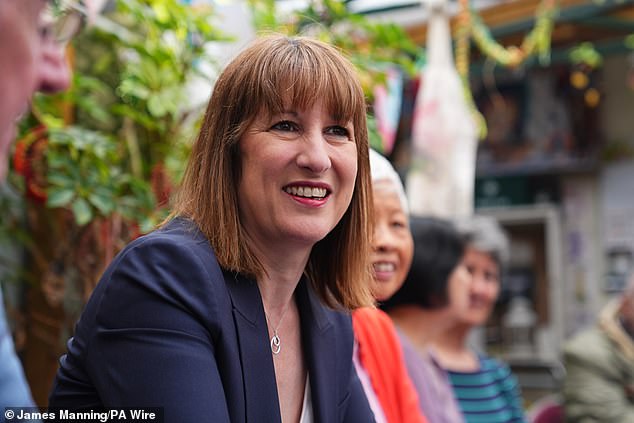Britain’s jobless rate surged to its highest level for nearly four years and pay growth for UK workers eased by more than expected as employers faced surging staff costs, official figures revealed today.
The Office for National Statistics (ONS) said average regular earnings, excluding bonuses, increased 5.2 per cent in the three months to April, down from 5.5 per cent in the previous three months and the lowest since the third quarter of last year.
While this is still outstripping inflation, up by 2.1 per cent with Consumer Prices Index inflation taken into account, it was lower than predicted, with most experts pencilling in a fall to 5.3 per cent.
The rate of unemployment also jumped to 4.6 per cent in the three months to April, up from 4.5 per cent in the three months to March and the highest level since the three months to July 2021.
The figures also showed vacancies tumbled by 63,000 to 736,000 in the three months to May, while payroll data revealed the biggest drop for five years last month, down 109,000 to 30.2million.
It coincided with firms facing a hike in national insurance contributions in April, which had been announced in October’s budget.
And it comes ahead of Chancellor Rachel Reeves announcing the Government’s latest spending review tomorrow.
Andrew Griffith, the Tory shadow business secretary, said: ‘It is disappointing but no surprise that unemployment is up again.

Chancellor Rachel Reeves visits the Castlehaven Horticulture hub in North London yesterday
Your browser does not support iframes.
Your browser does not support iframes.
‘Businesses are still absorbing a £25 billion Jobs Tax but things are about to get even worse as Labour’s £5 billion unemployment bill hits businesses with higher regulation. Labour have to think again.
‘Only businesses create jobs and wealth in the economy.’
It comes as Ms Reeves prepared to deliver her spending review in the Commons tomorrow.
Liz McKeown, ONS director of economic statistics, said: ‘There continues to be weakening in the labour market, with the number of people on payroll falling notably.
‘Feedback from our vacancies survey suggests some firms may be holding back from recruiting new workers or replacing people when they move on.’
The Institute of Directors raised concerns that ‘the business case for hiring new staff has been dealt a series of blows’ by rising staff costs and upcoming changes to employment law.
Despite the fall in pay growth, economists said earnings so far remained robust – buoyed by the recent minimum wage rise.
The Bank of England will be weighing this up carefully against clear signs of a weakening jobs market, according to economists.
Matt Swannell, chief economic adviser to the EY Item Club, said he believed a cut in June remained unlikely, but that rates may come down again in August.
‘Today’s data is likely to reinforce the view that underlying inflationary pressures are cooling, but with pay growth still far above the rate consistent with inflation returning sustainably to 2 per cent, most of the MPC will still want to act cautiously to guard against sticky inflation,’ he said.
Minister for employment Alison McGovern said: ‘Six months after we launched Get Britain Working, we are already seeing the benefits with economic activity at a record high, with 500,000 more people in employment since we entered office and real wages growing more since July than in the decade after 2010.
‘People all over the country are benefiting from increased training opportunities and the newly launched Jobs and Careers Service will allow us to test new and innovative approaches to personalise employment support.’
Share or comment on this article:
Blow for Rachel Reeves as unemployment creeps up and wage growth slows on the eve of Chancellor’s spending review